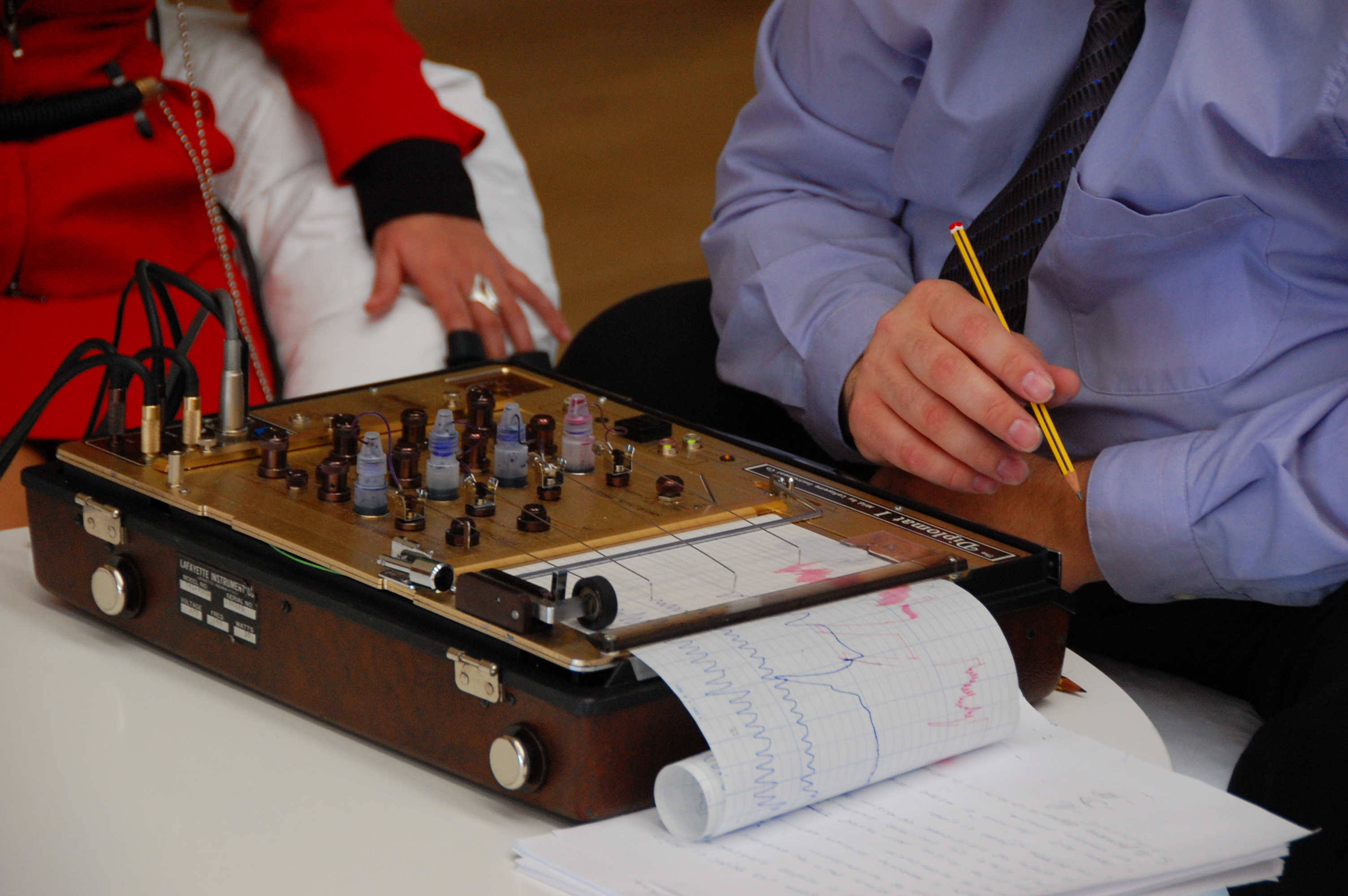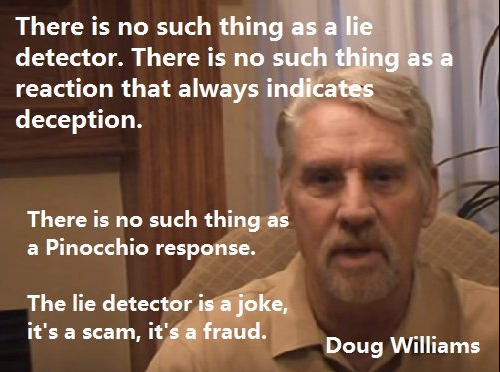Here's How to Beat a Lie Detector Test

By:
If you ever have to take a lie detector test, you may be interested to know that they can be outsmarted relatively easily.
How A Polygraph Works
Lie detector tests — or polygraphs — measure whether someone is telling the truth by monitoring three factors: heart rate, blood pressure, and breathing. Using an arm cuff, chest straps, and electrodes attached to fingers, the polygraph's needles rise and fall when one of the three factors shifts, creating lines on a piece of paper. After a polygraph exam, the paper is analyzed by a polygraph examiner to determine if the person was lying.
 Flickr/Gabriel Rodriguez - flickr.com
Flickr/Gabriel Rodriguez - flickr.com
The Control Question Test (CQT) is the most common type of polygraph test. In this test, examiners determine the probability that someone is lying by using statistical analysis to compare an examinee's answers to two types of questions, "control questions" and "relevant questions." Control questions are usually broad questions, such as, "Have you ever deceived someone who trusted you?" Relevant questions, on the other hand, specifically address the crime for which the examinee is being accused. After the test, the examiner compares the reactions to control questions to the reactions to the relevant questions.
"A person who is telling the truth is assumed to fear control questions more than relevant questions," The American Psychological Association explained in a 2004 report. If the interviewee's physiological reactions to relevant questions are more significant than reactions to control questions, then the answers are diagnosed with "deception." If their responses to control questions are greater, they are considered to be truthful, while equal responses lead to an "inconclusive" test.
How To Outsmart A Polygraph
Despite what society calls them, Raymond Nelson, president of the American Polygraph Association, told Business Insider that a polygraph is not necessarily a "lie detector."
This is a "term of convenience, not science," he explained, based on what physiological signs are most likely to reveal. It is possible to train yourself to pass a polygraph while lying if you exhibit what examiners consider typical physical signs of truthfulness, and it is also possible to fail if you react in a deceptive manner while telling the truth.
A polygraph "is nothing more than a psychological billy club used to coerce and intimidate people,” Doug Williams, a former Oklahoma City Police detective and polygraph examiner told the New York Times. Williams has had multiple run-ins with the Department of Justice over the course of his career as a polygraph coach helping people beat the test and was sentenced to two years in prison for obstruction of justice in September of last year.
Don't fly by the seat of your pants, Williams, the polygraph coach, instructs people, insisting that anyone can pass a polygraph test with the proper preparation. His website, no longer online, offered "the demonstrated ability to teach you how to always pass your polygraph test — nervous or not — lying or not — no matter what!"
So what does he say to do? When you hear a relevant question, Williams says "go to the beach" before you answer - literally imagine yourself on a calm beach or another relaxing setting.
For control questions, picture something that you're extremely afraid of. It also doesn't hurt to clench your anus, according to Williams.
These two strategies are aimed at beating the Control Question Test by producing reactions in which it appears the examinee is more nervous about control questions then relevant questions. As explained above, examinees with those types of responses are usually determined to be innocent.
Why Polygraphs Can Be Unfair
Williams has referred to polygraphs as “insidious Orwellian instruments of torture" and believes that he has been unfairly persecuted for exposing the fallibility of common lie-detector tests. “I’ve made [the government] look like fools and con men,” he told NPR. "This indictment [was] brought simply to punish and silence me because I have the audacity to protest the use of the polygraph."
 Twitter/Lybio
Twitter/Lybio
Though Williams' stance is particularly extreme, he is not alone in objecting to polygraph use.
"The public needs to know that polygraph testing has no scientific basis and is inherently biased against truthful people, yet liars can train themselves to pass," George Maschke, the co-creator of Antipolygraph.org, said. Maschke asserts that law enforcement officers who administer polygraphs often go out of the way to intimidate interviewees, which can skew results.
"They might preface the question with an explanation that the sort of person who would lie to get out of trouble is the sort of person who might commit espionage," Maschke said. "They want the person to make a blanket denial."
Polygraphs are still commonplace in criminal investigations, but the Employee Polygraph Protection Act dictates that they cannot be used by most private employers. The American Polygraph Association rates their accuracy rate at above 80%.
"That's still better than any other technology available today," Nelson told NPR.
